|
Siyi Chen I am a PhD student in Electrical and Computer Engineering at University of Michigan-Ann Arbor (2022 - Present), advised by Prof. Qing Qu. My research interests encompass generative AI and multimodal foundation models, such as diffusion models, vision-language models, and representation learning. I am interested in exploring their interpretability, controllability, and unification. Prior to my PhD, I received a B.S.E. in Computer Science from University of Michigan-Ann Arbor, and a B.S.E. in Electrical and Computer Engineering from Shanghai Jiao Tong University. During my undergraduate studies, I worked with Prof. David Fouhey and Dr. Shengyi Qian on 3D computer vision. Email / Google Scholar / Twitter / Github |
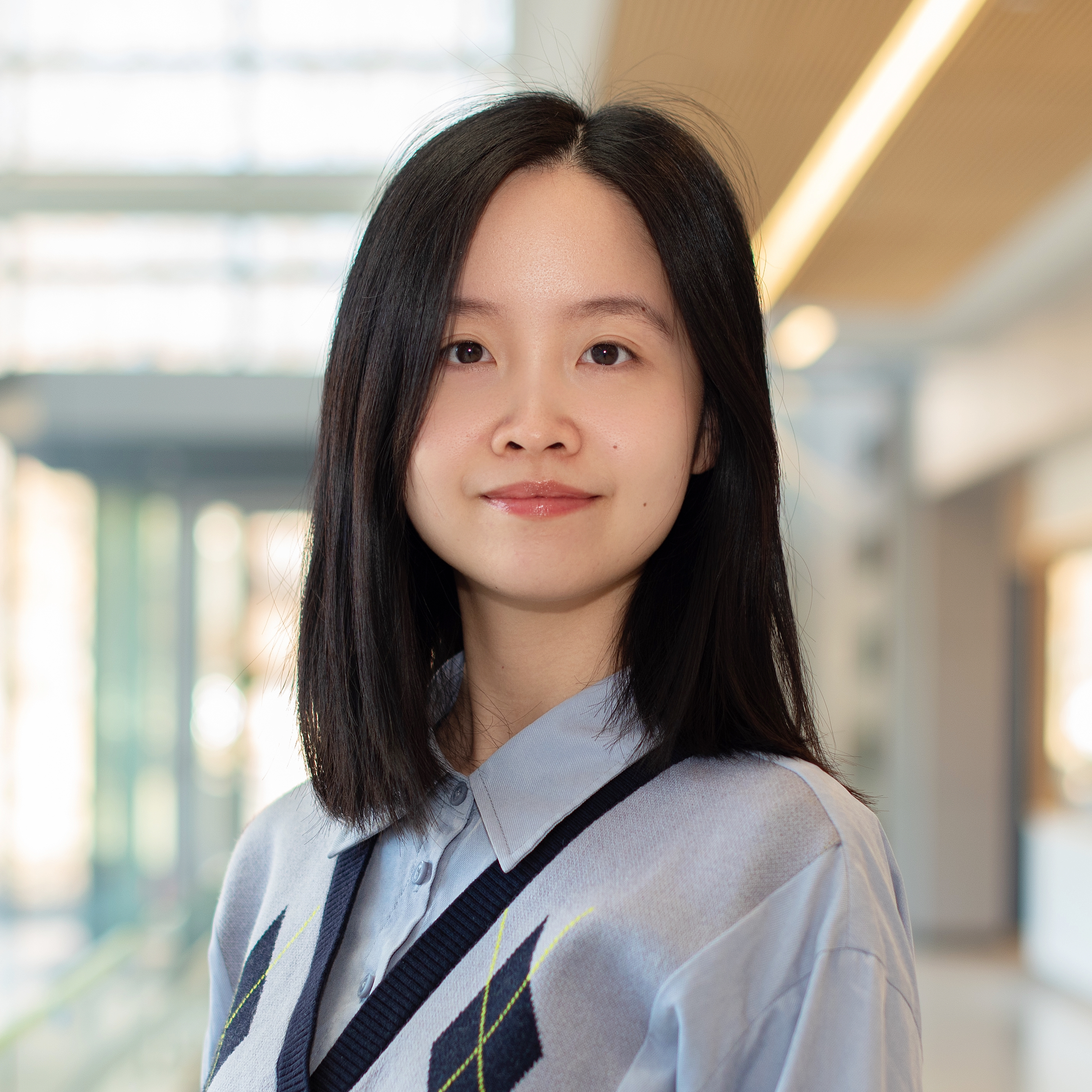
|
News1. [05/2025] I joined NVIDIA as a Research Intern in the Learning and Perception Research Group! 2. [04/2025] I have received the Rackham Internship Fellowship! 3. [03/2025] I joined Sony AI America as a Research Intern in the Vision Foundation Model and Generative AI Team! 4. [03/2025] I have received the Rackham Predoctoral Fellowship! |
Work Experience |

|
NVIDIA, Learning and Perception Research Group, 05/2025 - Present. Research Intern. Host: Jonathan Trembly, Valts Blukis, Mikaela Angelina Uy, Faisal Ladhak, Stan Birchfield |

|
Sony AI America, Vision Foundation Model and Generative AI Team, 03/2025 - 05/2025. Research Intern. Host: Jingtao Li, Weiming Zhuang, Lingjuan Lv |
Publicaions |
|
SpaceTools: Tool-Augmented Spatial Reasoning via Double Interactive RL
Siyi Chen, Mikaela Angelina Uy, Chan Hee Song, Faisal Ladhak, Adithyavairavan Murali, Qing Qu, Stan Birchfield, Valts Blukis, Jonathan Tremblay Preprint, 2025 website / code / paper SpaceTools empowers VLMs with vision and robotic tools for spatial reasoning via Double Interactive Reinforcement Learning (DIRL), enabled by our Toolshed infrastructure. Achieves state-of-the-art performance on spatial reasoning benchmarks and enables precise real-world robot manipulation. |
|

|
The Dual Power of Interpretable Token Embeddings: Jailbreaking Attacks and Defenses for Diffusion Model Unlearning
Siyi Chen, Yimeng Zhang, Sijia Liu, Qing Qu Preprint, 2025 website / code / paper We introduce a novel framework for auditing and improving the robustness of unlearned diffusion models by proposing an interpretable subspace attack, that reveals latent vulnerabilities and inspires a corresponding projection-based defense to surgically remove them. |

|
Explaining and Mitigating the Modality Gap in Contrastive Multimodal Learning
Can Yaras*, Siyi Chen*, Peng Wang, Qing Qu CPAL, 2025 website / code / paper We study gradient flow to explain modality gap in CLIP, and propose new methods to mitigate modality gap while improving model performance. |
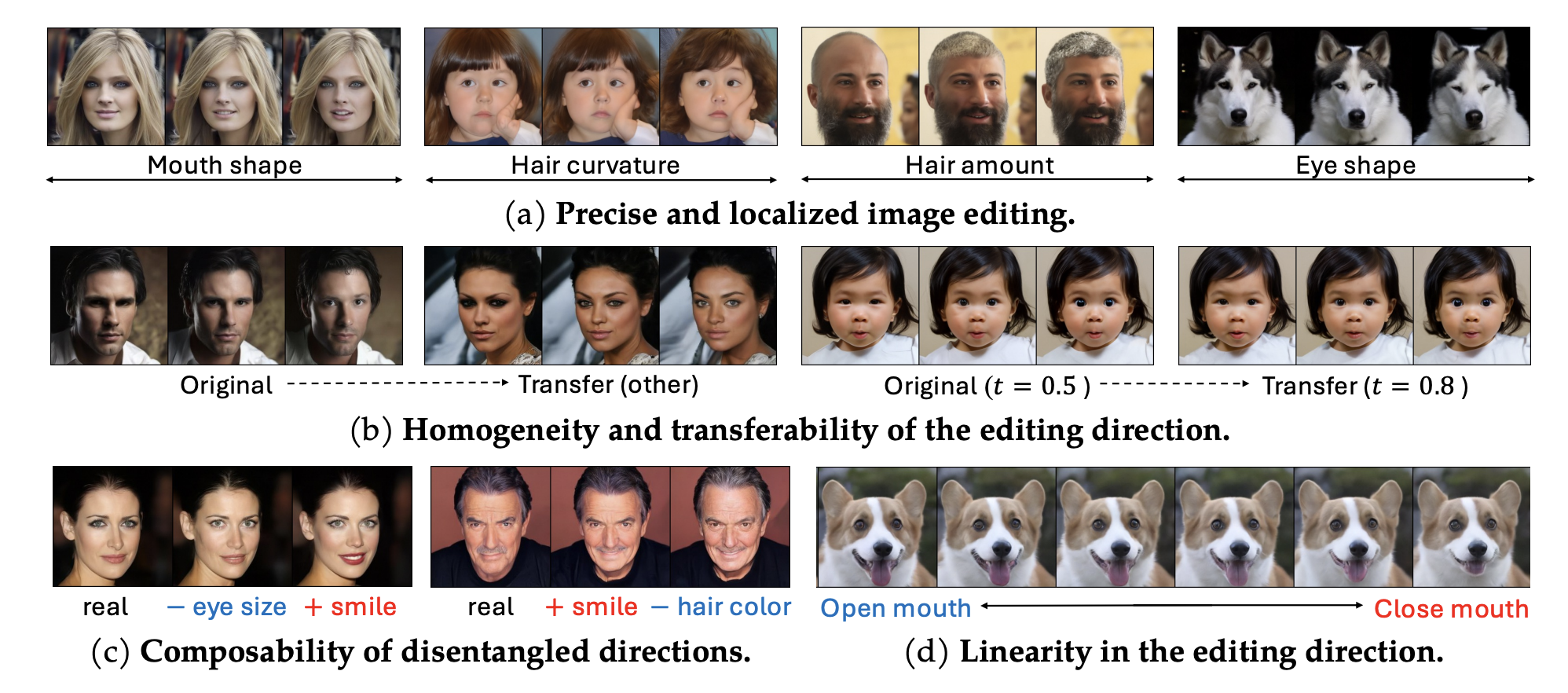
|
Exploring Low-Dimensional Subspaces in Diffusion Models for Controllable Image Editing
Siyi Chen*, Huijie Zhang*, Minzhe Guo, Yifu Lu, Peng Wang, Qing Qu NeurIPS, 2024 website / code / paper We enable localized, transferable, linear, and composable image editing on diffsion models by exploring their low-rank and locally linear semantic spaces. |

|
Unfolding Videos Dynamics via Taylor Expansion
Siyi Chen, Minkyu Choi, Zesen Zhao, Kuan Han, Qing Qu, Zhongming Liu NeurIPS SSL Workshop, 2024 paper Inspired by physical motion, we unfold a video clip via Taylor expansion and design an alternative algorithm for self-supervised video representation learning. Our proposed method can steer the model to dynamic parts in the video. |

|
Diffusion Models Learn Low-Dimensional Distributions via Subspace Clustering
Peng Wang*, Huijie Zhang*, Zekai Zhang, Siyi Chen, Yi Ma, Qing Qu NeurIPS M3L Workshop, 2024 code / paper We provide theoretical insights into the connection between diffusion model and subspace clustering, which sheds light into the transition of diffusion model from memorization to generalization. |

|
Understanding 3D Object Articulation in Internet Videos
Shengyi Qian, Linyi Jin, Chris Rockwell, Siyi Chen, David Fouhey CVPR, 2022 website / code / paper We propose to investigate detecting and characterizing the 3D planar articulation of objects from ordinary videos. |
Teaching |
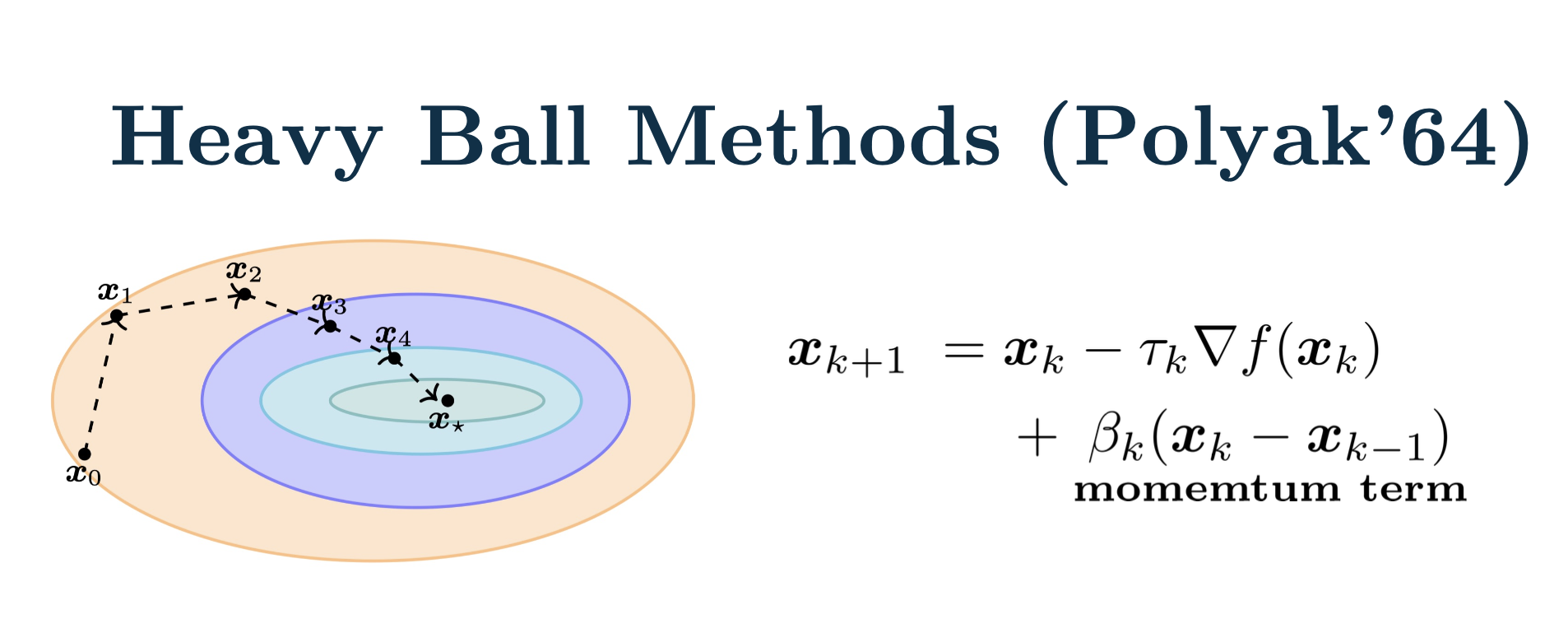 |
Graduate Student Instructor, EECS 559 Optimization, 2024 & 2025 Undergraduate Instructional Assistant, EECS 442 Computer Vision, 2022 |
Selected Projects |
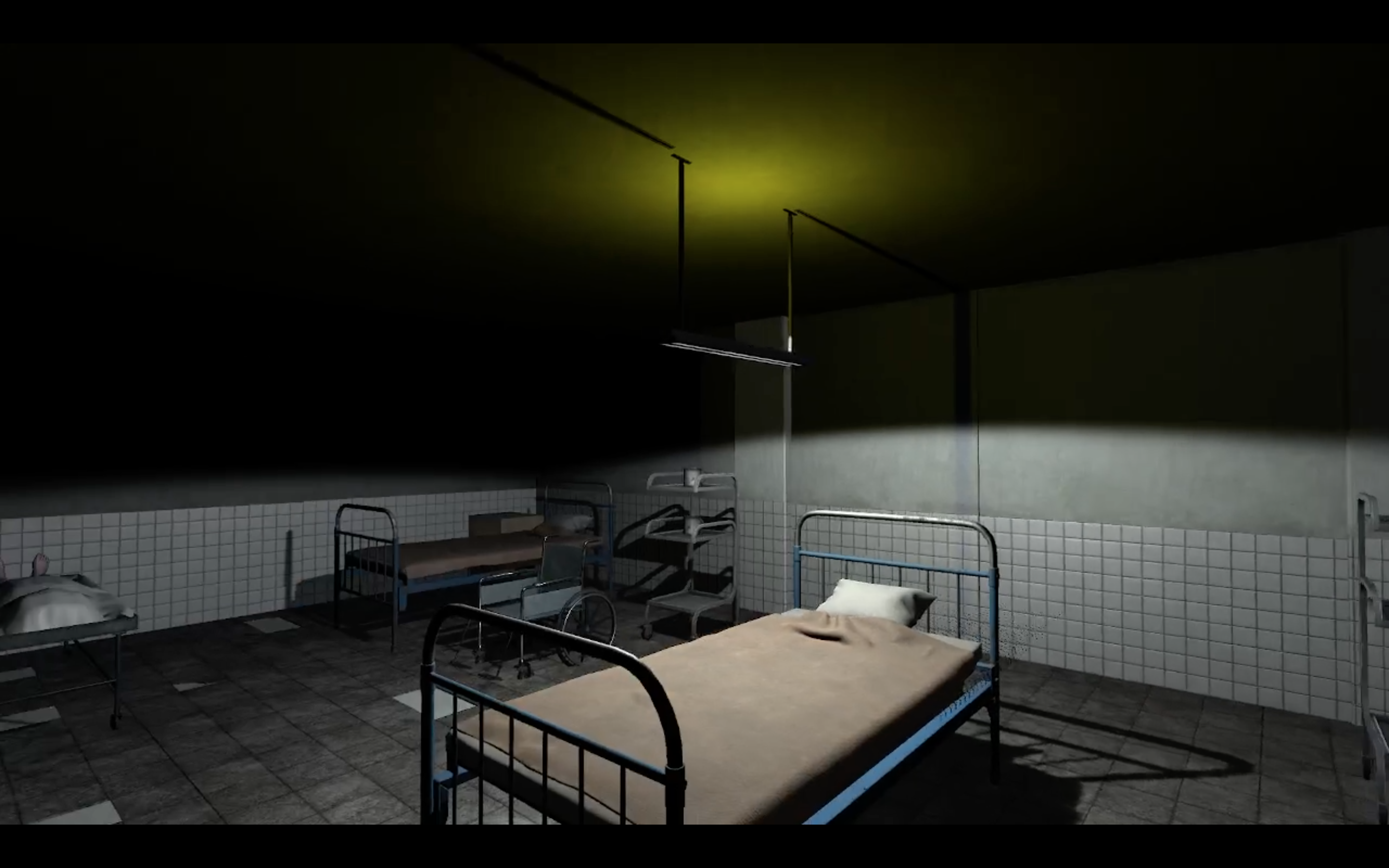
|
Self-designed Game: Asylum 7
Siyi Chen, Yigao Fang, Dawei Wang, Zhongqian Duan, Ruipu Li Course Project, University of Michigan, 2022 Advisor: Austin Yarger Play it here As a team of five, we designed a horror game, Asylum 7, with Unity. |

|
Generate 3D Indoor Synthetic Dataset
Siyi Chen 3D Computer Vision Research, University of Michigan, 2022 Advisor: Shengyi Qian, David Fouhey code We generate 3D synthetic video dataset containing a moving object and a scene. The pose and position of the object is optimized via a differential render. |

|
Combined Understanding of 3D Plane Articulation and Partial Human Pose Estimation
Siyi Chen 3D Computer Vision Research, University of Michigan, 2021 Advisor: Shengyi Qian, David Fouhey code / poster We predict 3D partial human poses as SMPL meshes, predict 2D plane masks as well as 3D articulation information, and use a differential render to optimize the position and pose of the person considering 3d space interactions. |
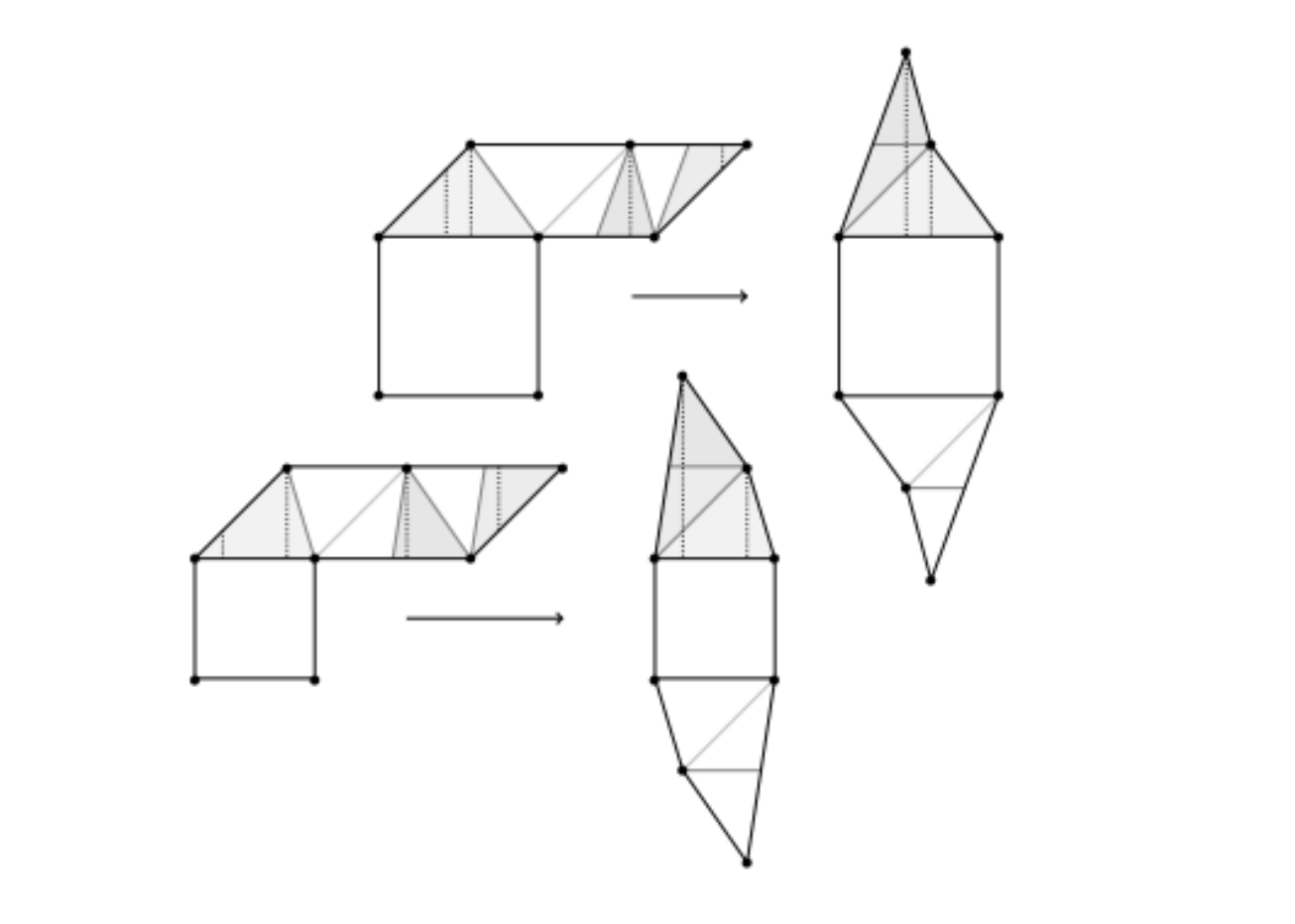
|
Convex Presentations of Translation Surfaces
Siyi Chen, Andrew Keisling, Kaiwen Lu, Brendan Nell Computational Geometry Research, University of Michigan, 2021 Advisor: Chaya Norton, Paul Apisa code / poster / paper We designed and implemented beta versions of enumerating origamis in H(2) and utilized SageMath to implement the convexity test presented by Lelievre and Weiss. |
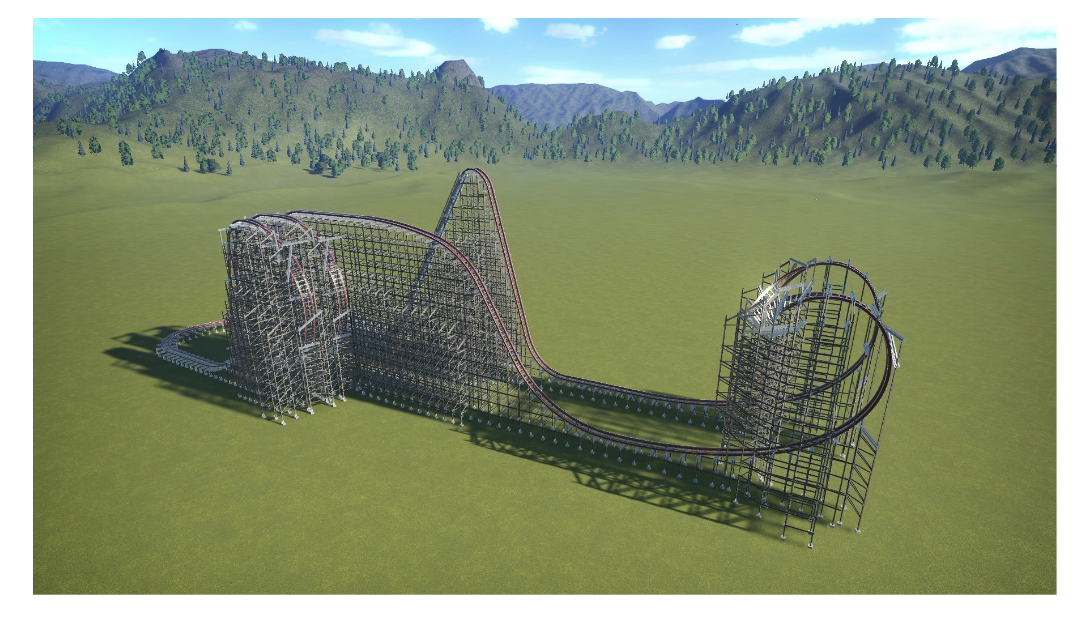
|
Design A Roller Coaster
Siyi Chen, Yigao Fang, Qi Shen Gold Medal Winner (Top 2%) , The University Physics Competition 2019 paper We devise a rule to evaluate the safety and difficulty level of roller coasters, propose a novel roller coster model, and give a through analysis based on Euler's method and natural axes. |
|
This webpage is based on Jon Barron. |